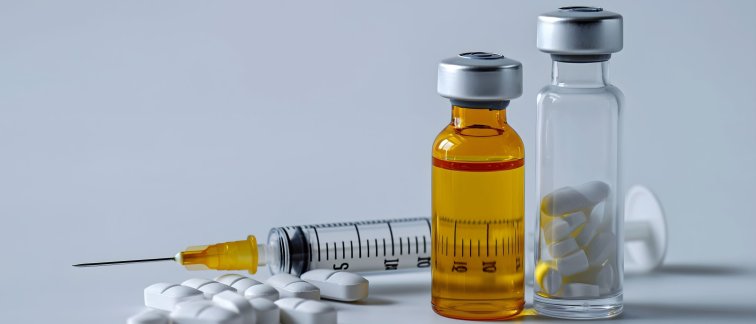One of the studies involves a new drug that can prevent edema. The other study introduces a new way to treat swelling: for the first time, patients can take a pill instead of an injection to stop emerging edema. Both studies are phase-3 clinical trials, testing the safety and effectiveness of the drugs in patients with hereditary angioedema (HAE).
Preventing Swellings
Cohn has been focusing on HAE patients for seven years. In 2017, he treated a critically ill patient. Cohn: “This patient frequently had attacks that threatened her with suffocation. Existing medications were insufficient. I was aware that several pharmaceutical companies were developing drugs for HAE and asked if I could use their drug for this patient.” His request was declined by all but one firm in the United States. They had developed a drug and tested it on healthy volunteers. At that time, they were not planning to further develop it as several other drugs were more advanced in development. “I was given this drug for free. The patient responded well and had significantly fewer attacks. She continues to use it to this day.”
Targeted Treatment
Cohn has since conducted several studies with this drug, ‘donidalorsen’. The latest research has proven that this drug is both effective and safe in preventing edema. The drug specifically stops the production of the protein prekallikrein. “Prekallikrein is the (inactive) precursor of the protein kallikrein, which plays a crucial role as a messenger protein in the development of edema. By stopping the production of prekallikrein, kallikrein can no longer send the signal to trigger edema.”
Cohn: “We found that a monthly injection of donidalorsen led to a median reduction in edema by 90% compared to the baseline. Administering it every two months resulted in an 83% reduction in edema. With placebo treatment, the reduction was 16%. The quality of life improved significantly. Patients also experienced almost no side effects, except for redness at the injection site.”
No More Needles
The other study involves the drug sebetralstat: a pill that can replace an injection that patients use when they feel edema coming on. It is known that there is a quicker recovery if the patient treats edema early. However, patients often delay treatment because they are afraid of the injection or wait until they are in a quiet place. Cohn is pleased with the results: “The pill containing sebetralstat quickly reduces symptoms and leads to rapid recovery. Participants tolerate the drug well. A long-cherished wish of patients experiencing edema has thus been fulfilled.”
This study examined the time between taking the pill and the time of symptom relief in patients. The onset of recovery occurred faster in patients who took the pill with sebetralstat compared to placebo (about 1.5 hours versus over 6.5 hours with placebo). The severity of edema also decreased more rapidly after taking a sebetralstat pill than with placebo. No serious side effects occurred, and any side effects were the same for sebetralstat and placebo. The drugs are not yet available to patients. Cohn hopes this will change soon.
On May 31, Cohn presented the data from these articles at the annual conference of the EAACI (European Academy of Allergy and Clinical Immunology) in Valencia.
Read more about the study on the drug donidalorsen in the New England Journal of Medicine and about the sebetralstat pill in NEJM.
Foto: Adobe Stock

